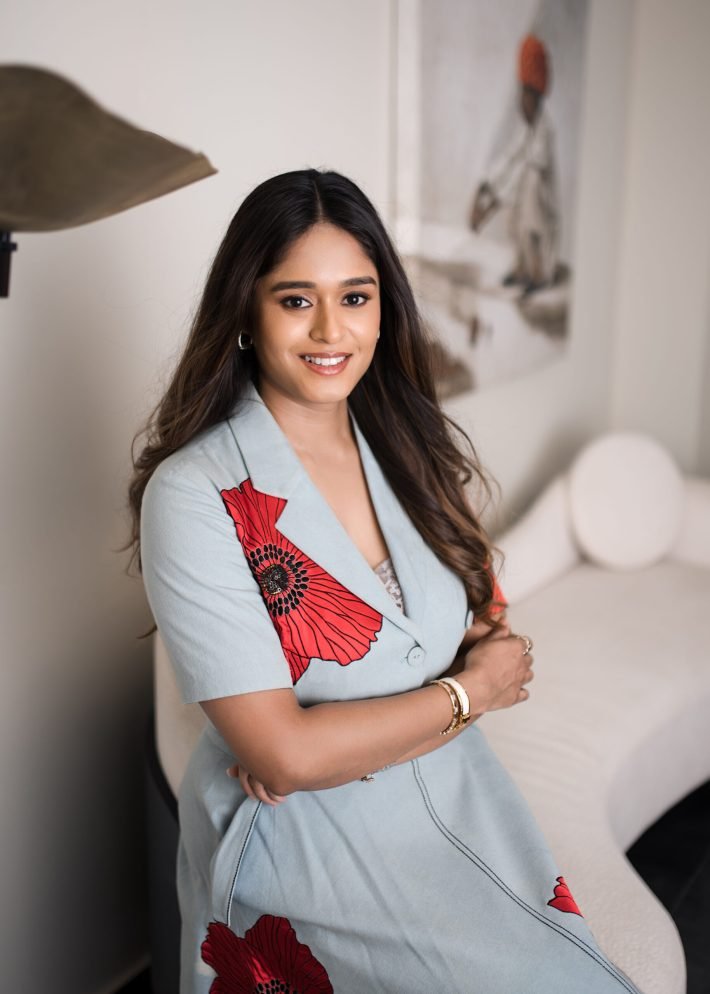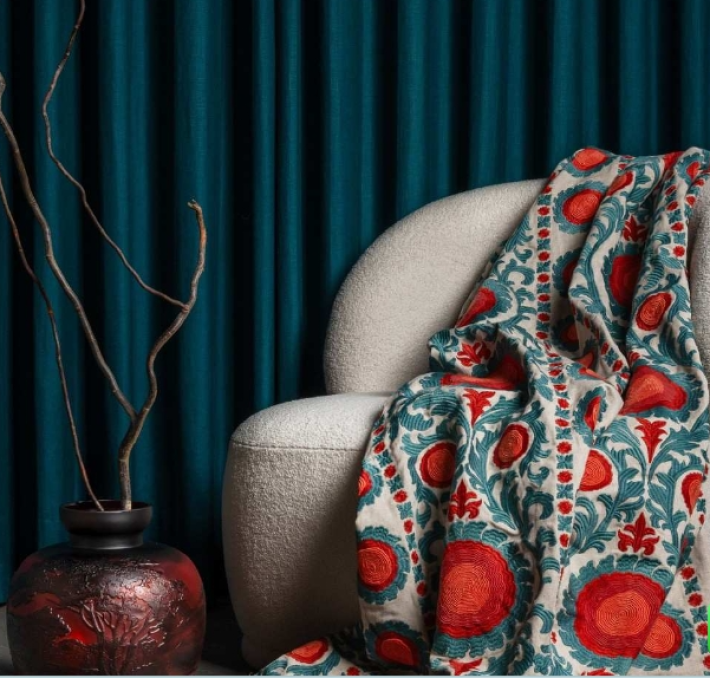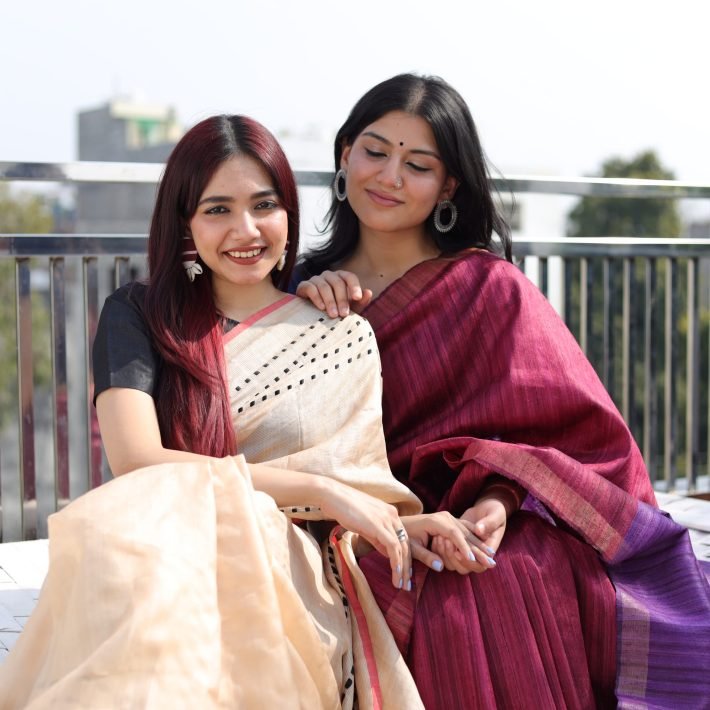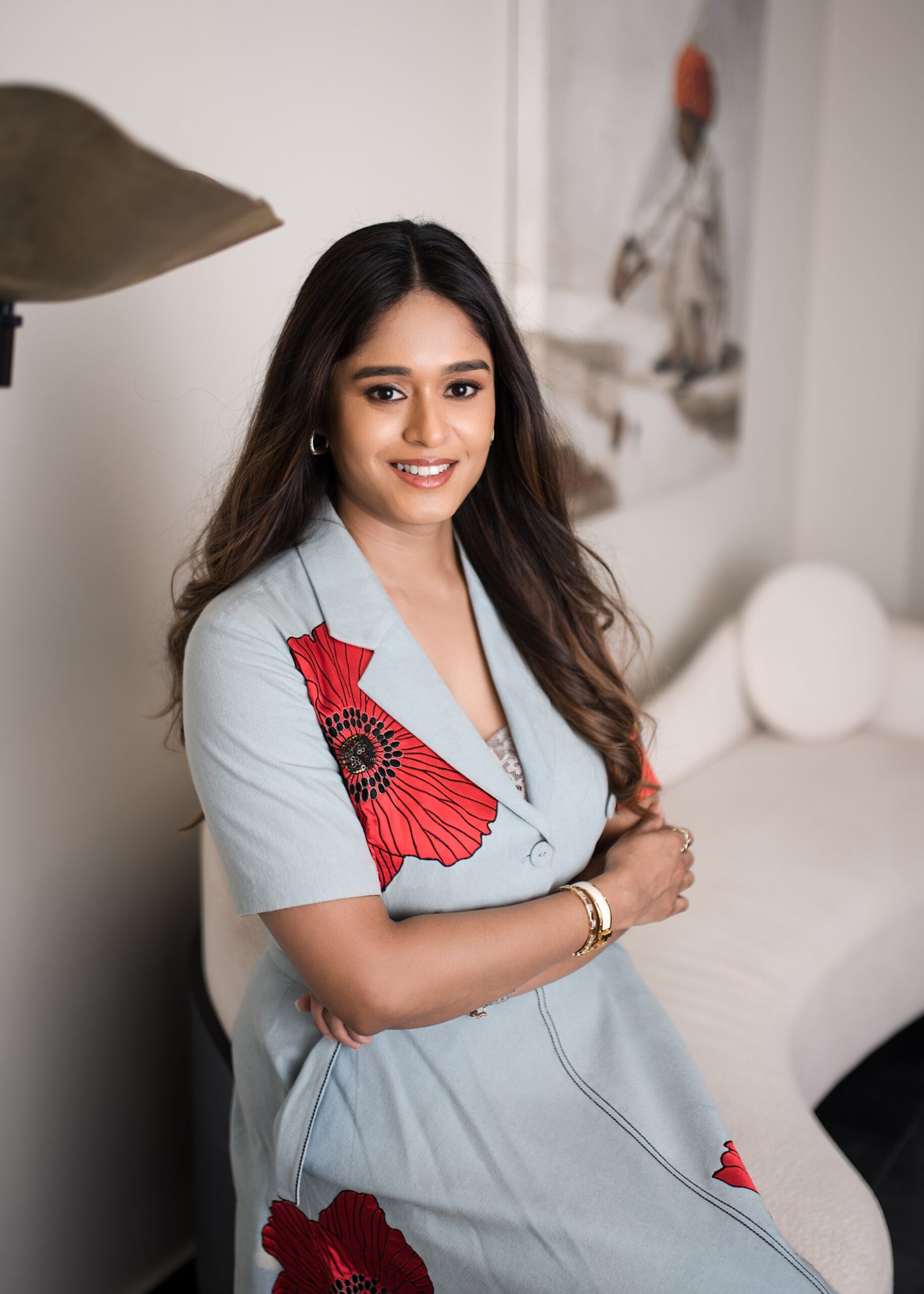The gorgeous Mrunal Thakur, who is known for her power-packed performances in movies like ‘Love Sonia’, ‘Super 30’, and ‘Toofaan’, is not just an accomplished actor, she is also a woman of substance who voices her opinions on matters that are integral to women. She has extended her support to Whisper’s latest campaign #KeepGirlsInSchool and as someone who advocates menstrual health and hygiene among young girls in school, Mrunal speaks to Sumita Chakraborty, TheGlitz about how relevant period education is for the girl child from the start. Read on…

You have extended your support to Whisper’s latest campaign #KeepGirlsInSchool. Is there any particular reason you had in mind to create awareness for this campaign?
In India, there are numerous myths and taboos associated with menstruation. During my upbringing, I was fortunate that I was surrounded by people who knew the science behind periods and did not perpetuate these myths. Additionally, I had the opportunity to experience the Whisper program during my school days, which played a significant role in normalizing periods for me.
But unfortunately, menstruation still remains a large taboo in parts of India due to cultural and social stigmas. I have always been an advocate for women empowerment. I strongly believe that when girls are educated, they become independent, confident, and capable of making their own choices. They are better equipped to challenge societal norms, break through gender barriers, and pursue their passions. I believe in breaking these taboos and normalizing conversations about menstruation. By supporting the #KeepGirlsInSchool campaign, I hope to create awareness about educating people, particularly young girls, about menstrual health and hygiene and how it is crucial for effective period management and confidence.
Why is it important to create awareness about menstrual health and hygiene?
In India, like in many other cultures, there are several myths and misconceptions surrounding menstruation. These myths often contribute to period stigma and can negatively impact the lives of young girls and women. Here are some common myths around periods in India:
-Menstruating women are impure
-Contact with menstruating women can contaminate food or other items
– Menstruating women should not touch others
-Menstrual blood is dirty and menstruating women are physically unclean.
– Menstruating women should not participate in religious activities.
Menstrual education is a critical factor in empowering girls and supporting their continuous education. The lack of awareness and knowledge surrounding menstruation often adds to the existing taboos. Recognizing this, Whisper has been dedicated to period education for almost three decades, striving to raise awareness about menstrual hygiene and supplying sanitary pads to girls throughout India. By equipping girls with essential knowledge about menstrual health and products, we can enable them to confidently navigate through their periods and ensure uninterrupted school education. It is vital to empower young girls to pursue their dreams without the need to compromise their education due to something as natural as periods.
What are the three foremost pillars on which menstrual health stands?
Education and Awareness: Menstrual health education and awareness is one the very important pillars. It involves providing necessary information about menstruation, its biological processes, hygienic practises, and the usage of menstrual products. Educating both girls and boys, as well as parents, schools, and communities, aids in the dispelling of myths, minimising of stigma, and fostering of positive attitudes towards menstruation.
Access to Menstrual Products: Providing affordable and safe menstrual products is another important pillar. Due to financial constraints, a lack of availability, or cultural taboos, many girls and women experience hurdles to acquiring proper menstruation products. We can empower girls and women to manage their periods hygienically and comfortably by ensuring accessible access to menstrual products.
Menstrual Hygiene Management: Proper menstrual hygiene management is a crucial aspect of menstrual health. It involves adopting practices that maintain cleanliness during menstruation, including regular changing of sanitary products, proper disposal of used products, and maintaining personal hygiene. Promoting good MHM practices helps prevent infections, discomfort, and related health issues.
By strengthening these pillars, we can promote menstrual health and ensure that girls and women have the support they need to manage their periods with dignity and confidence.
Tell us about Whisper’s “Missing Chapter” in our school textbooks.
Whisper’s “Missing Chapter” campaign aims to address the lack of information and awareness about menstrual health in school textbooks. It recognizes that menstruation is a natural and essential aspect of a girl’s life but is often omitted or treated as a taboo subject in educational materials.
The campaign advocates for the inclusion of comprehensive and accurate information about menstrual health in school textbooks. It highlights the importance of educating both girls and boys about menstruation, breaking the silence and stigma surrounding periods, and promoting a healthy and informed attitude toward menstrual hygiene.
How relevant is period education?
Period education is incredibly relevant and plays a vital role in society. It addresses the knowledge gap and challenges surrounding menstruation, benefiting both girls and boys, women and men.
i) Menstrual Health: Period education provides essential information about the biology of menstruation, the menstrual cycle, and the physical and emotional changes that occur. It helps individuals understand what is happening in their bodies, promoting better self-care, and enabling them to identify and address any abnormalities or health concerns.
ii) Breaking Stigma and Taboos: Menstruation is often surrounded by cultural taboos and stigmas that can lead to shame, silence, and misinformation. Period education helps break down these barriers by providing accurate knowledge, addressing myths, and promoting open conversations. It fosters a supportive and inclusive environment where menstruation is seen as a normal and natural part of life.
iii) Menstrual Hygiene: Proper menstrual hygiene is essential for the well-being and health of individuals who menstruate. Period education educates individuals about hygiene practices, including the use of menstrual products, proper disposal methods, and maintaining cleanliness. By promoting good menstrual hygiene practices, period education helps prevent infections, discomfort, and other health-related issues.
iv) Empowerment and Well-being: Period education empowers individuals by providing them with the knowledge and understanding needed to manage their periods effectively
v) Gender Equality and Education: Lack of access to period education and menstrual products can negatively impact girls’ education and opportunities. Period education promotes gender equality by ensuring that girls have the necessary information and support to manage their periods and stay in school. It helps create an environment where menstruation does not become a barrier to education and girls can reach their full potential.
Lastly, what message do you want to give to the girls in India?
First and foremost, know that menstruation is a natural and normal part of life. It is a sign of your body’s incredible strength and ability to create life. Embrace this natural process and be proud of your body.
Don’t let periods hold you back from anything. Your periods should not limit your potential or hinder your ambitions. You are capable of achieving anything you set your mind to, regardless of whether you are menstruating or not. Believe in yourself and pursue your dreams with confidence.
Always remember that education is your key to empowerment. Educate yourself, seek knowledge, and never stop learning. Education opens doors, expands your horizons, and equips you with the tools to overcome challenges.













